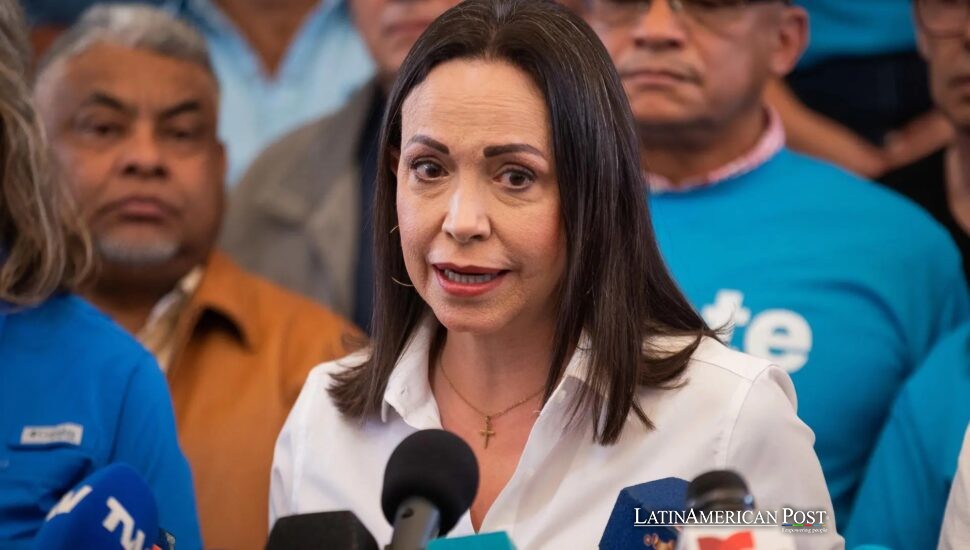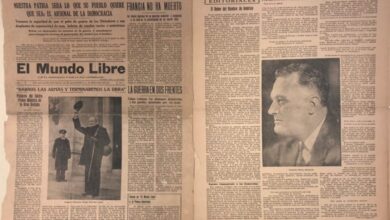Venezuela’s Nobel Moment: María Corina Machado’s Triumph and the Trials Ahead

By honoring María Corina Machado with the Nobel Peace Prize, the world has fastened a bright ribbon onto Venezuela’s darkest knot. The accolade is both a celebration and a provocation—an act of recognition that could revive democratic hope or provoke harsher retaliation from those who fear it most.
A Prize Crowned in Hope, Shadowed by Risk
A Nobel does not free political prisoners, fill grocery shelves, or reopen ballot boxes. What it does is shift the conversation. Machado’s recognition arrives after years of bans, raids, and arrests—after an election whose true results remain locked behind official silence. For Venezuelans who have been gasping for oxygen under authoritarian pressure, the prize feels like a window opening. For the government, it could be an excuse to close the shutters tighter.
The stakes are immense. The Nobel gives the democratic movement a global megaphone, but also paints a larger target on its back. In a system that equates dissent with treason, international awards can be twisted into “proof” of foreign interference. Machado’s supporters see her honor as vindication; her detractors will likely brand it subversion.
Venezuela has lived this tension before—when international applause emboldened civil society but embittered power. The challenge, now as then, is to turn moral capital into material progress. Awards are not shields. They are spotlights, and in a country where institutions bend under the weight of politics, light can illuminate or burn.
From Technocrat to Torchbearer
Machado’s path to this moment was never linear. Trained as an industrial engineer from one of Caracas’s established families, she began as a technocrat—a numbers-driven reformer fighting to safeguard elections. When the government expropriated her family’s factory, her politics hardened into conviction. “A nation that rations legality cannot produce prosperity,” she once said.
Over two decades, that conviction evolved into a movement. The state banned her from running for office, hoping to erase her from contention. Instead, she became a symbol. Traveling by car, motorbike, and foot across forgotten rural towns, often sleeping in borrowed homes, she built bridges beyond Venezuela’s traditional elite. She won the opposition’s presidential primary in a landslide, then—when the ban remained—ceded her place to diplomat Edmundo González, embodying a simple, radical message: that this fight was larger than one candidate.
The cost was high. Advisers were jailed, rallies were attacked, and she spent weeks in hiding. But her reappearances—brief, unbowed, amid crowds that refused to disperse—cemented her image as both strategist and survivor. Her defiance is quiet, not theatrical: the engineer’s precision fused with the activist’s stubborn hope. In a country where politics often feels like theater, that authenticity struck a nerve.
Now, the Nobel places her not just on the world’s stage but under its scrutiny. Heroism is easier to celebrate than to sustain. Machado must now transform endurance into organization, charisma into structure, movement into governance.
The Hard Politics of Rebuilding a Broken Economy
Venezuela’s wounds are deeper than any single victory can heal. If change comes, the morning after will reveal a country with collapsed infrastructure, depleted oil fields, and millions who have fled or fallen into poverty.
Machado’s program of market liberalization and privatization will collide with the jagged reality of scarcity. PDVSA, once Latin America’s crown jewel, is now a ghost company riddled with corruption and debt. Rebuilding it is less an ideological challenge than a logistical one: how to bring capital back without surrendering sovereignty, how to reform without detonating more inequality.
For a decade, remittances from abroad have kept families alive. A post-authoritarian government would have to offer something more than survival: functioning schools, clinics, and a minimum of economic dignity. Privatizing a broken state is not a policy; it is a perilous balancing act between urgency and inclusion.
And looming over it all is the climate question. Oil built Venezuela’s twentieth century. It may not fund its twenty-first. The transition to cleaner energy will test how quickly the country can reinvent itself as a supplier of minerals, innovation, or even moral leadership in sustainability. The paradox is cruel: to rebuild, Venezuela will need investment from the same global markets that once turned a blind eye to its implosion.
The Nobel can open doors to development banks and investors—but those investors will be watching for one thing above all: rules. Transparent tenders, independent courts, and a tax system that funds welfare without punishing work. The applause of Oslo means nothing if Caracas cannot build trust at home.
Beyond a Laurel, a Test of Coalition and Courage
Machado has often said, “This is not my struggle; it is our struggle.” It sounds like a slogan. It is actually a blueprint. No single leader can rebuild a nation that has been hollowed by fear and flight. Her movement’s survival—and Venezuela’s chance for renewal—depends on how inclusive it becomes.
That means giving the diaspora a seat at the table. The millions of Venezuelans abroad have kept families fed and skills sharp; they will be vital to any reconstruction. It means engaging with trade unions, pastors, teachers, and even disillusioned soldiers—without the arrogance of victory or the paranoia of vengeance. It means listening to those who still cling to the government, not as loyalists but as survivors whose only consistent provider has been the state.
If Machado’s Nobel becomes a pedestal, it will fail her. If it becomes a platform for collective rebuilding, it could redefine what opposition means.
Reconciliation cannot mean impunity. Justice cannot mean revenge. Stability cannot mean the return of the same machinery under new management. The path forward requires truth commissions, transitional justice, and above all, patience—something Venezuela has not been allowed in decades.
The Nobel Peace Prize is a symbol, not a solution. It buys one meeting, maybe ten. It buys headlines and temporary leverage. What it cannot buy is trust, the most precious currency in any democracy. That will have to be woven from the ground up—through institutions, schools, courts, and a social contract rebuilt by citizens who still believe the future is theirs to claim.
The world has bestowed its honor. The country must now prove worthy of it. If Venezuela’s story is to change, the next chapter must be written not in exile or repression, but in shared work—in laws that protect, markets that include, and leadership that listens.
Also Read: Ecuador’s Democracy on Edge as Anger and Austerity Collide
Machado’s prize is a spark. Whether it lights a way forward or another round of retaliation will depend not on her alone, but on a weary nation’s ability to keep walking through the darkness, toward the light it was just told still exists.





